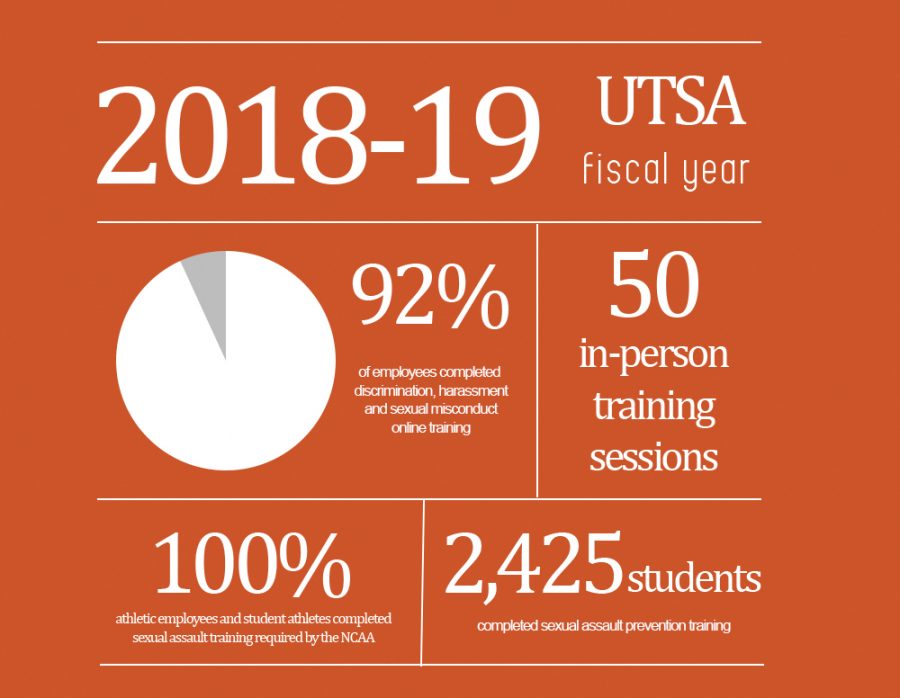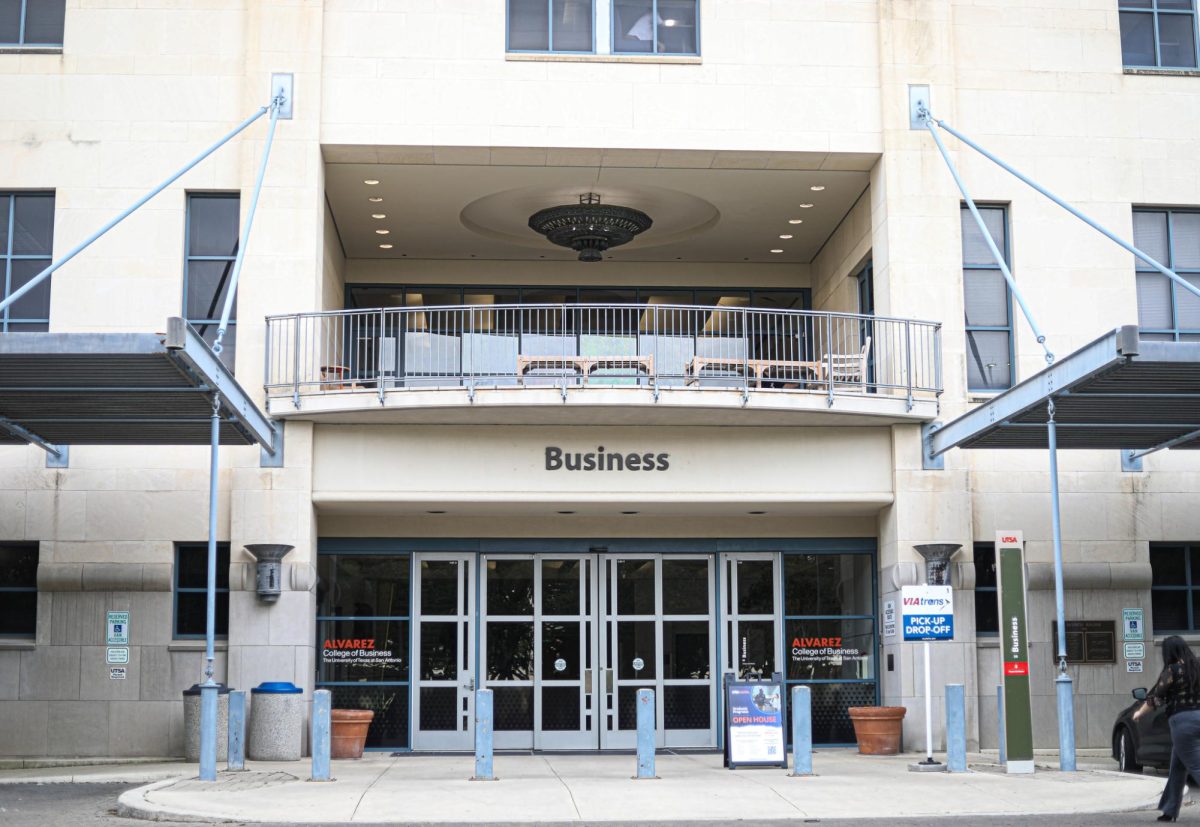UTSA released its first Title IX Annual Report, an outcome of the Presidential Initiative on Preventing Sexual Assault and Misconduct. A link to the report was included in an email Suzanne Patrick, director of equal opportunity services and Title IX coordinator, sent to the UTSA community on Oct. 16.
“The report provides us with comprehensive data to identify next steps in our efforts to communicate while honoring confidentiality to those who report,” Patrick said.
While the EOS/Title IX office handles a wide range of complaints regarding discrimination of protected classes, this Title IX report focused on student-related sexual harassment and sexual misconduct.
The report includes statistics on the number of training sessions held; the number of students, faculty and athletes who completed training; the number of reports made and the number of reports that became official cases, which went through a resolution process.
According to the report’s introduction, it contains data on investigations that the Title IX Office handled during the 2018-2019 fiscal year without violating confidentiality and FERPA limitations. This specific report focused only on student-on-student Title IX reports and cases.
During the period from Aug. 1, 2018, to July 31, 2019, there were 421 reports made; 103 of these reports were classified as student-on-student Title IX reports, and only 41 of these became cases. Out of the 41 cases, 36 were sexual misconduct cases, while five were sexual harassment cases.
In the same 2018-2019 fiscal year, the EOS/Title IX Office conducted 50 in-person training sessions; 2,425 students completed sexual assault prevention training; 6,384 employees completed discrimination, harassment and sexual misconduct training and all athletic employees and student-athletes completed the NCAA required sexual assault training.
In addition to the statistics, the report includes information regarding reasons for employees reporting, reasons for students reporting, how the office has raised awareness, bystander intervention, the Set the Expectations campaign, the Employee Assistance Program, the ombudsperson services, the Behavioral Intervention Team, the UTSA Police Department, the LiveSafe application, the UTSA PEACE Center, the President’s Initiative on Preventing Sexual Assault and Misconduct and the Safe Campus Website. The report also provides information and statistics for the Student Health Services and Counseling and Mental Health Services.
“Not everything students bring to the office has to go through the formal process,” Patrick said. “Students should also know that there are other great resources on campus to assist them prior to or during the reporting process, including the Student Ombudsperson, Counseling Services Department and the UTSA Peace Center.”
The report states that sexual assault prevention training will be mandatory for all incoming students beginning the Fall 2020 semester, and future reports will include faculty-on-student data, staff-on-student data and additional EOS matters.
According to Patrick, increasing outreach, visibility and communication has increased the number of people reaching out to the office. The office hopes to implement new initiatives aimed at creating an environment where students feel comfortable.
“We have a new online reporting system that allows us to get reports in real-time by text and email,” Patrick said. “This allows us a more efficient way to track reports and respond to reporters quicker. The online reporting link is on the UTSA Office of Equal Opportunity Services site under ‘file a report.’”
In addition to the office’s implementations, the Texas legislature passed two laws that went into effect on Sept. 1.
“Senate Bill 212 requires all university employees to report incidents of sexual misconduct to the Title IX Coordinator, something UTSA already had implemented,” Patrick said. “House Bill 1735 creates new requirements for institutional policies on sexual harassment and sexual misconduct and will authorize civil penalties for non-compliance.”
On Nov. 1, UTSA will launch its EOS and Title IX office at the Downtown Campus in the Frio Street Building (FS 2.422).












